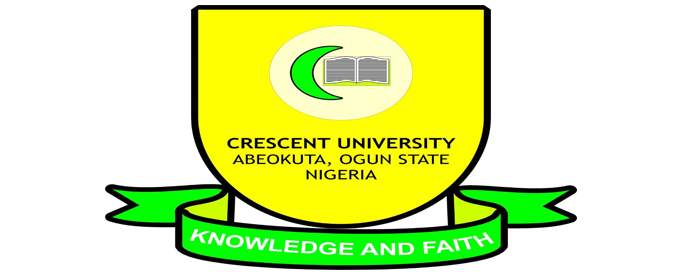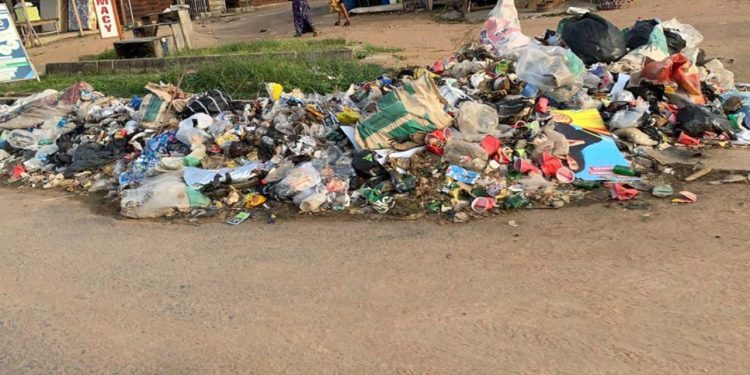INTRODUCTION
Abeokuta, the historic capital of Ogun State, has long struggled with the challenge of
indiscriminate refuse dumping. Streets, markets, and drainage systems are often clogged with
waste, leading to health hazards, flooding, and environmental degradation. Despite government
sanitation efforts, the problem persists due to poor waste management infrastructure, inadequate
public awareness, and lack of enforcement of waste disposal regulations. However, innovative
community-led solutions and private sector interventions are emerging, offering a path toward a
cleaner city.
THE CHALLENGE OF WASTE MANAGEMENT IN ABEOKUTA
Indiscriminate dumping of refuse remains a major urban issue in Abeokuta. Open dumpsites,
roadside waste piles, and blocked drainages contribute to environmental pollution and public
health risks, including outbreaks of cholera and other waterborne diseases. Residents cite
irregular waste collection services and lack of designated disposal points as key factors driving
the problem.According to the Ogun State Environmental Protection Agency (OGEPA), the state generates
thousands of tons of waste daily, but only a fraction is properly collected and processed. “Most
people don’t have access to formal waste disposal services, so they resort to dumping waste in
gutters, roadsides, or unauthorized spaces,” explains an environmental officer from OGEPA.
COMMUNITY-LED SOLUTIONS: A GRASSROOTS APPROACH
While government intervention is crucial, local communities and organizations in Abeokuta have
taken proactive steps to address the waste management crisis.
1. The Clean Abeokuta Initiative
In 2023, a group of young environmental activists launched the Clean Abeokuta Initiative, a
volunteer-driven project aimed at reducing refuse dumping through community engagement. The
initiative organizes weekly sanitation exercises and educates residents on proper waste disposal.
“We realized that awareness was key,” says Ayo Balogun, a coordinator of the project. “Many
people dump waste carelessly because they don’t know the long-term consequences.”
2. Waste-to-Wealth Programs
Some local entrepreneurs have turned waste into economic opportunities. The Abeokuta
Recycling Hub, for instance, collects plastic waste and converts it into reusable materials. “We
buy plastic bottles from scavengers and residents, process them, and sell them to manufacturers,”
says the founder, Tunde Adeyemi. This initiative not only reduces waste but also provides jobs
and income for waste pickers.
3. Adopt-a-Dump Program
Another innovative approach is the “Adopt-a-Dump” program spearheaded by the Ogun State
Waste Management Authority (OGWAMA) in partnership with local businesses. Companies and
community groups take responsibility for specific waste-prone areas, funding regular cleanups
and setting up bins. “By involving businesses and residents, we’re creating a culture of
responsibility,” says an OGWAMA official.
THE ROLE OF TECHNOLOGY AND POLICY
Recognizing the need for a sustainable approach, the Ogun State government is working on
digitizing waste collection. The newly introduced OGUN Waste App allows residents to report
illegal dumping, schedule waste pickups, and locate the nearest waste disposal sites.
Additionally, stricter enforcement of sanitation laws, including fines for indiscriminate dumping,
is being considered to deter violators.
CHALLENGES AND THE ROAD AHEAD
Despite these positive developments, challenges remain. Many communities still lack waste bins,
and some residents are resistant to change due to long-standing habits. There is also the issue of
funding, many local initiatives rely on donations and volunteer work, which may not be
sustainable in the long run.
Experts suggest that a multi-stakeholder approach involving the government, private sector, and
civil society is needed to sustain progress. More investment in waste processing infrastructure,
increased public education, and better incentives for recycling can drive long-term change.
CONCLUSION
The fight against indiscriminate refuse dumping in Abeokuta is far from over, but community-
driven solutions and innovative waste management strategies are making a difference. With
continued public participation, government commitment, and private sector investment,
Abeokuta can transition from a city plagued by waste mismanagement to a cleaner, healthier, and more sustainable urban environment.
471 total views, 4 views today



